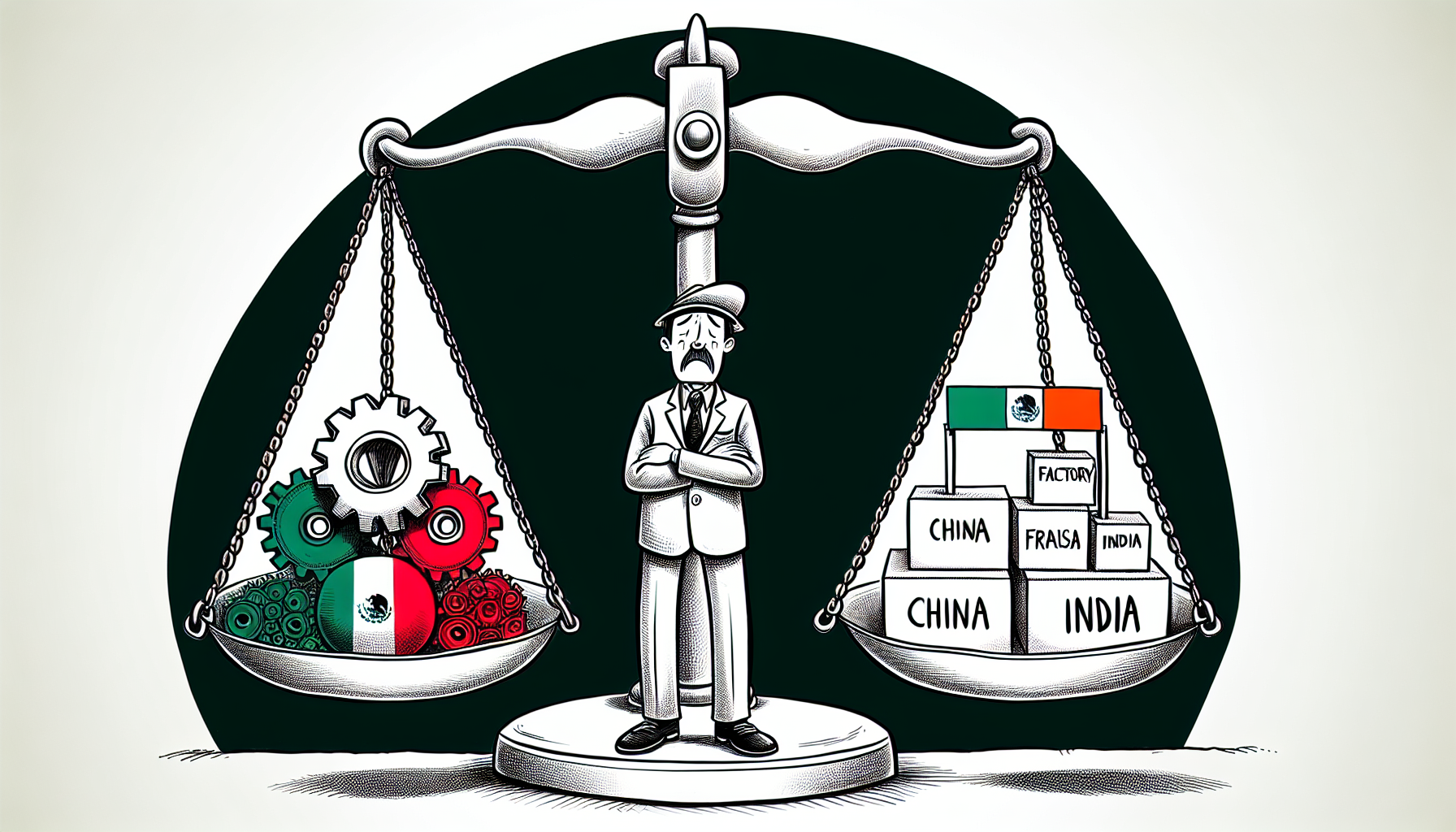
tl;dr
Mexico delays controversial tariffs on Asian goods, sparking debates over economic impact, trade relations, and industrial protection as the nation balances domestic interests against global supply chain risks.
**Mexico Delays Controversial Tariff Plan on Asian Goods Amid Economic Concerns**
Mexico’s Congress has postponed a highly anticipated vote to impose steep import tariffs on goods from China and other Asian countries, citing the need for further analysis and economic caution. The proposal, which could mark a significant shift in the nation’s trade policy, will be revisited no later than November 23. The delay reflects growing debates over the potential economic impacts of the measure, as lawmakers grapple with balancing industrial protection against broader market risks.
The proposed tariffs, supported by President Claudia Sheinbaum’s administration, would target approximately 1,400 product categories, including automobiles, steel, auto parts, toys, and furniture. The duties, ranging from 10% to 50%, would apply to goods from countries without free trade agreements with Mexico, such as China, India, and South Korea. Economy Minister Marcelo Ebrard argued the policy aims to shield Mexican industries from “unfair competition” driven by cheap imports, particularly from China, which he claims is undermining local manufacturing.
However, the plan has sparked fierce criticism from economists, lawmakers, and business groups. Critics warn that the broad-based tariffs could disrupt supply chains, increase production costs, and lead to higher consumer prices. The Bank of Mexico has also raised concerns, noting that the measures could exacerbate inflation at a time when the central bank is working to stabilize prices and lower interest rates. Some legislators have pushed to separate the proposal from the 2026 national budget, urging a more narrow review of its economic consequences.
Senator Ricardo Monreal, leader of the ruling Morena party in the lower house, emphasized the need for careful deliberation. While acknowledging the government’s intent to protect domestic industries, he highlighted concerns that the tariffs could inadvertently harm Mexican businesses reliant on imported materials. “We’re not rushing into a sensitive decision,” Monreal said, though he acknowledged the proposal’s complexity.
Entrepreneurs and trade groups have called for greater consultation, arguing that Mexico must support local manufacturers without sacrificing competitiveness or deterring foreign investment. Meanwhile, China has condemned the move, labeling it a “unilateral and damaging act” that threatens Mexico’s business environment and investor confidence. Beijing has initiated an investigation to assess whether the tariffs violate international trade norms, potentially paving the way for retaliatory measures.
Chinese officials also suggested the policy could be influenced by U.S. pressure, pointing to Washington’s broader efforts to counter Chinese manufacturing dominance in North America. President Sheinbaum rejected this claim, asserting that Mexico’s trade policy is sovereign and focused on safeguarding national interests. She emphasized the government’s desire to foster fair competition rather than provoke conflict.
The timing of the debate is critical as Mexico prepares for the 2026 review of the USMCA (United States-Mexico-Canada Agreement). Some analysts speculate that the tariff proposal could serve as a bargaining tool in U.S.-Mexico negotiations, demonstrating willingness to address Chinese trade influence. Yet others caution that escalating tensions with China risk straining diplomatic and commercial ties, given the country’s role as a major supplier of affordable goods.
As the debate continues, Mexico faces a delicate balancing act: protecting its industrial base while navigating the complexities of global trade. The outcome of the delayed vote will not only shape the nation’s economic trajectory but also test its ability to manage relationships with key trading partners in an increasingly interconnected world.